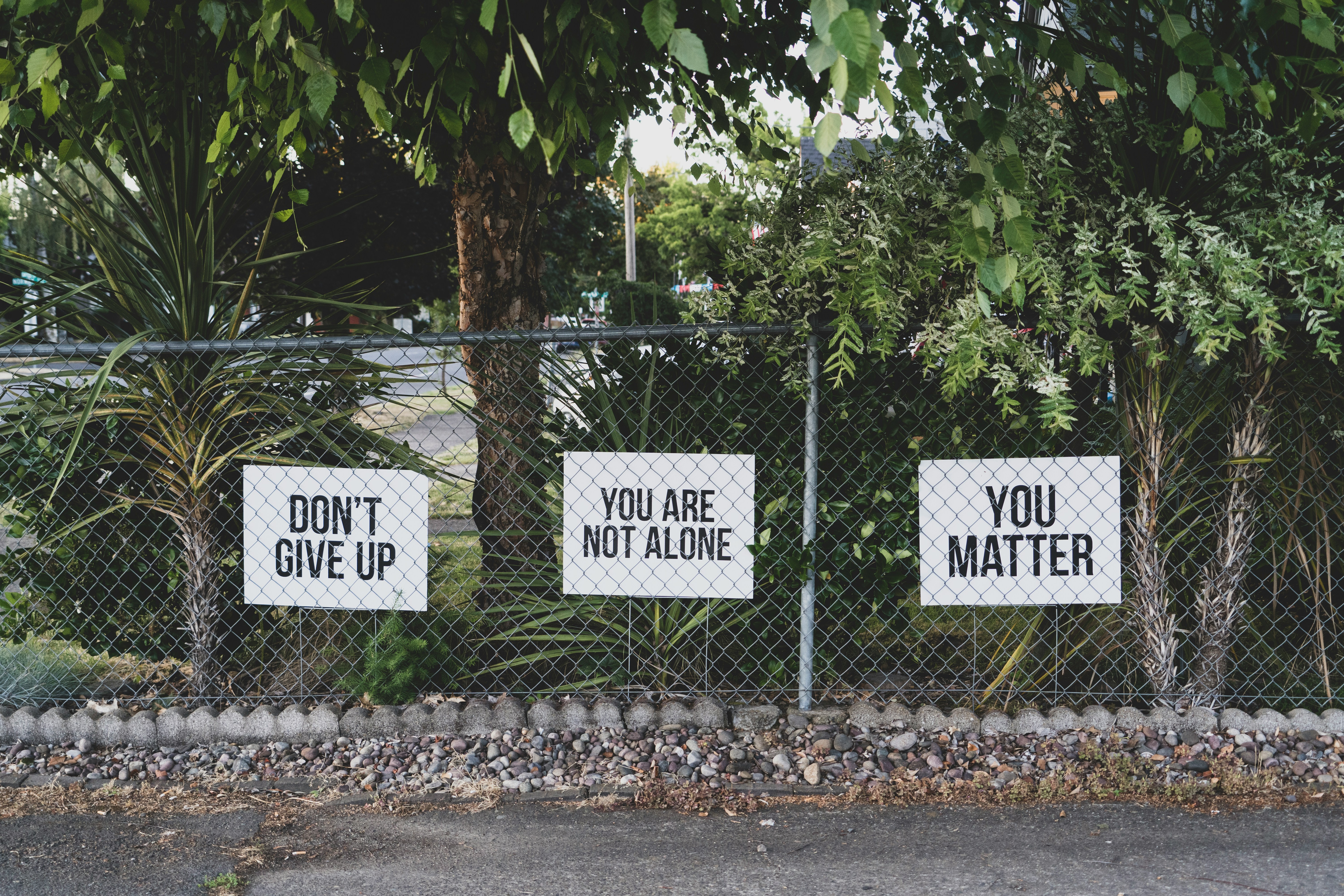Mental Health Awareness and How to Help

Getting through the day while struggling with mental health is difficult. Trying to be productive isn’t easy when you’re dealing with negative thoughts, a lack of energy or any one of the many symptoms that make existing hard. Recognition and education are important ways to remove the stigma associated with mental illness. Talking openly about mental health can reduce the misconceptions and stigma, and can encourage those who are suffering to seek help and find a support network. It's important for family, friends, and loved ones to understand the impact that mental health has on daily life. When we as a society are better educated on these conditions, we can better support and help someone dealing with a mental health issue. We want to be part of the movement to break the stigma around mental health! While so many mental health conditions are common these days, it shouldn’t and doesn’t have to, prevent you from living a fulfilling life!
Mental illnesses affect 19% of the adult population, 46% of teenagers and 13% of children each year. People struggling with their mental health may be in your family, live next door, teach your children, work in the next cubicle or sit in the same church pew. However, only half of those affected receive treatment, often because of the stigma attached to mental health. Untreated, mental illness can contribute to higher medical expenses, poorer performance at school and work, fewer employment opportunities and increased risk of suicide.
Struggling with Mental Health
A mental health condition is a physical illness of the brain that causes disturbances in thinking, behavior, energy or emotion that make it difficult to cope with the ordinary demands of life. Research is starting to uncover the complicated causes of these diseases which can include genetics, brain chemistry, brain structure, experiencing trauma and/or having another medical condition, like heart disease.
The two most common mental health conditions are:
Anxiety Disorders
More than 19% of adults each year struggle with some type of anxiety disorder, including: post-traumatic stress disorder (PTSD), obsessive-compulsive disorder (OCD), panic disorder (panic attacks), generalized anxiety disorderand specific phobias.
Mood Disorders
Mood disorders, such as depressionand bipolar depression, affect nearly 10% of adults each year and are characterized by difficulties in regulating one’s mood.

Although the general perception of mental health has improved over the past decades, studies show that stigma against mental illness is still powerful, largely due to media stereotypes and lack of education, and that people tend to attach negative stigmas to mental health conditions at a far higher rate than to other diseases and disabilities, such as cancer, diabetes or heart disease. Stigma affects not only the number of people seeking treatment, but also the number of resources available for proper treatment. Stigma and misinformation can feel like overwhelming obstacles for someone who is struggling with a mental health condition. If you are struggling with a mental health condition, or someone you know who is, here are a few helpful activities to help improve your overall state of mind.
- Get regular exercise. Just 30 minutes of walking every day can boost your mood and improve your health. Small amounts of exercise add up, so don’t be discouraged if you can’t do 30 minutes at one time.
- Eat healthy, regular meals and stay hydrated. A balanced diet and plenty of water can improve your energy and focus throughout the day. Pay attention to your intake of caffeine and alcohol and how they affect your mood and well-being—for some, decreasing caffeine and alcohol consumption can be helpful.
- Make sleep a priority. Stick to a schedule, and make sure you’re getting enough sleep. Blue light from devices and screens can make it harder to fall asleep, so reduce blue light exposure from your phone or computer before bedtime.
- Try a relaxing activity. Yoga and meditation practices have proven to reduce cortisol levels (the stress hormone) and improve the quality of life. Explore relaxation or wellness programs or apps, which may incorporate meditation, muscle relaxation, or breathing exercises. Try staying consistent with healthy activities you enjoy, such as listening to music, reading, spending time in nature, and engaging in low-stress hobbies.
- Set goals and priorities. Decide what must get done now and what can wait. Learn to say “no” to new tasks if you start to feel like you’re taking on too much. Try to appreciate what you have accomplished at the end of the day.
- Practice gratitude. Remind yourself daily of things you are grateful for. Be specific. Write them down or replay them in your mind.
- Focus on positivity. Identify and challenge your negative and unhelpful thoughts. One of the most accessible tools we can use are self-help books. Personally, we love Brianna Wiest’s collection and have a variety of self-help books available in the shop!
- Stay connected. Reach out to friends or family members who can provide emotional support and practical help.
Mental health is a state of mental well-being that enables people to cope with the stresses of life, realize their abilities, learn well and work well, and contribute to their community. It has intrinsic and instrumental value and is integral to our well-being. Mental health is physical health and the more we can educate ourselves, the more we can advocate for one another!
